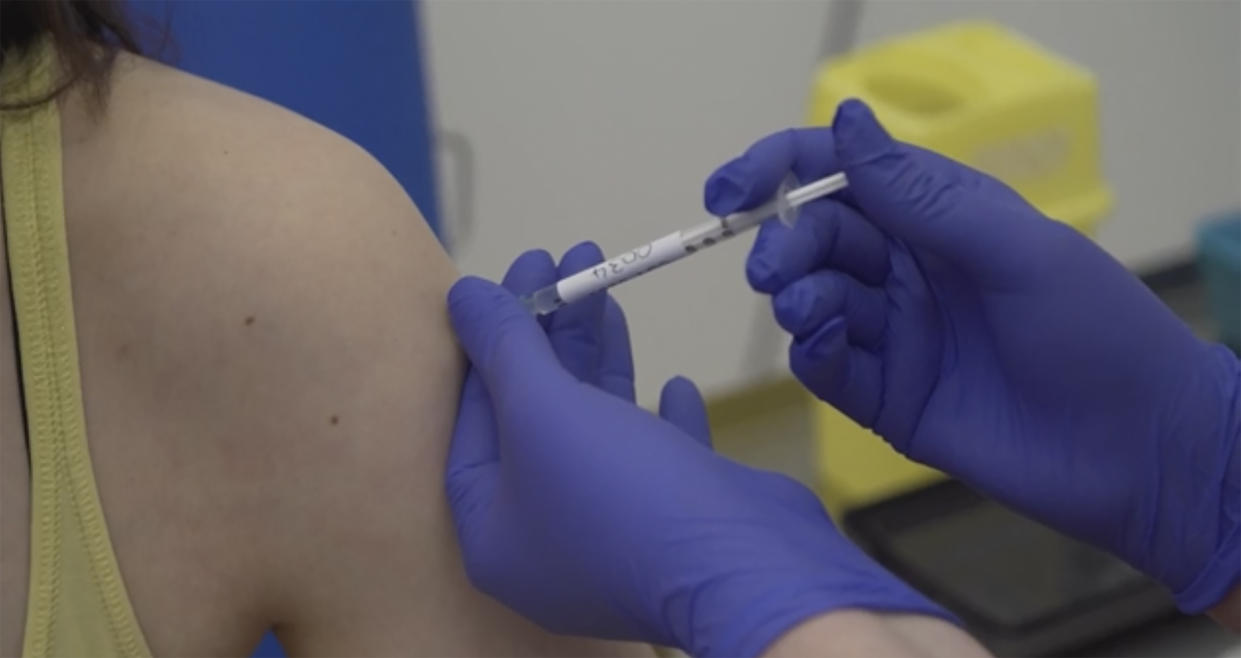Government signs deal for 60 million doses of potential coronavirus vaccine

The government has signed a deal with two pharmaceutical giants to secure 60 million doses of a potential coronavirus vaccine.
The deal, with GlaxoSmithKline (GSK) and Sanofi Pasteur, means the government now has orders for a total of 250 million doses of four different types of COVID-19 vaccine.
If it proves successful, the UK could begin to vaccinate priority groups, such as frontline health and social care workers and those at increased risk from coronavirus, as early as the first half of next year, the Department for Business, Energy & Industrial Strategy said.
Human clinical studies of the vaccine will begin in September followed by a phase 3 study in December.


Business secretary Alok Sharma said: "Our scientists and researchers are racing to find a safe and effective vaccine at a speed and scale never seen before.
"While this progress is truly remarkable, the fact remains that there are no guarantees.
"In the meantime, it is important that we secure early access to a diverse range of promising vaccine candidates, like GSK and Sanofi, to increase our chances of finding one that works so we can protect the public and save lives.”
Roger Connor, president of GSK Vaccines, said: "We believe that this adjuvanted vaccine candidate has the potential to play a significant role in overcoming the COVID-19 pandemic, both in the UK and around the world.”
Earlier this month, the government agreed deals with BioNTech, which is working with Pfizer and Valneva for access to their vaccines.
A further agreement has been signed with AstraZeneca and the University of Oxford for their jab, which could produce 100 million doses for the UK.
The vaccine produced by GSK and Sanofi, which together have the largest vaccine manufacturing capability in the world, is based on the existing DNA-based technology used to produce Sanofi's seasonal flu vaccine.
Kate Bingham, chair of the government's Vaccines Taskforce, said: "This diversity of vaccine types is important because we do not yet know which, if any, of the different types of vaccine will prove to generate a safe and protective response to COVID-19.
"Whilst this agreement is very good news, we mustn't be complacent or over-optimistic.

"The fact remains we may never get a vaccine and, if we do get one, we have to be prepared that it may not be a vaccine which prevents getting the virus, but rather one that reduces symptoms.”
The government said almost 72,000 people have volunteered in the past week to receive information about joining clinical studies to find a vaccine but many more are needed.
Ministers hope to get 500,000 people signed up by October.
Coronavirus: what happened today
Click here to sign up to the latest news and information with our daily Catch-up newsletter

 Yahoo News
Yahoo News 


